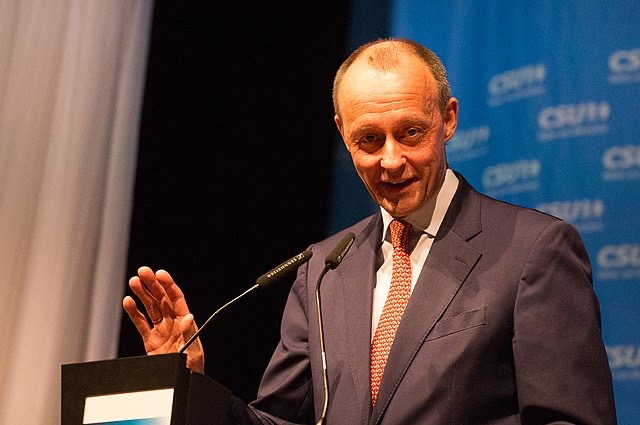Conservative Leader Clinches Chancellorship in Dramatic Second Vote
Friedrich Merz has officially been elected Chancellor of Germany in a stunning political turnaround, securing the position in a second Bundestag vote just hours after a historic failure in the first ballot. The 69-year-old CDU leader now becomes Germany’s 10th post-war Chancellor, taking the helm during one of the most turbulent periods in the country’s recent political history.
First Post-War Chancellor to Fail Initial Ballot—Then Triumph
Merz is the first chancellor-designate in postwar Germany to lose the initial parliamentary vote, a result that stunned both supporters and critics. But swift political maneuvering and urgent coalition negotiations helped him bounce back and claim victory on the same day.
What Happened in the Bundestag
First-Round Shock: Merz Misses Majority by Six Votes
Merz’s first attempt fell short when he received only 310 votes, failing to meet the 316-vote majority required to secure the chancellorship. His coalition—including the conservative CDU/CSU and the Social Democratic Party (SPD)—controls 328 seats, making the loss a clear sign of internal dissent.
Coalition Rallies to Secure Second-Round Victory
In a second vote held later in the day, Merz managed to win 325 votes, successfully rallying his bloc and quashing doubts about his leadership. The comeback underscores Merz’s ability to unify divergent political forces—at least for now.
How Merz Won the Second Ballot
Secures 325 Votes to Become Germany’s 10th Post-War Chancellor
With the second ballot triumph, Merz was able to lock in support from holdouts and secure his path to leading Europe’s largest economy. The result came after hours of behind-the-scenes meetings aimed at calming tensions and reaffirming coalition unity.
Political Pressure and Backroom Talks Pay Off
Sources close to the Bundestag revealed that Merz and CDU party officials held multiple private meetings with wavering lawmakers, promising political reforms and cabinet roles to win back support.
Who Is Friedrich Merz?
Veteran Politician with Business Credentials
Though this is his first time in executive office, Merz is no stranger to German politics. He began his career in the European Parliament and later led the CDU/CSU parliamentary group in the early 2000s. After a hiatus in the private sector, he returned as party leader with a promise to restore conservative values.
No Prior Cabinet Role—But Longtime Political Strategist
Merz brings a mix of political experience and corporate acumen, having worked in investment banking and chaired major German corporations. His leadership style is expected to be economically focused and reform-driven.
Challenges Ahead for Merz’s Government
Sluggish Economy, Ukraine War, U.S. Tariffs Loom
Merz takes power at a critical juncture. Germany faces an economic downturn, rising inflation, and industrial stagnation, as well as growing tensions with the U.S. over President Trump’s new tariffs. Supporting Ukraine and maintaining European unity will also be top priorities.
Rise of Far-Right AfD Underscores Volatile Political Climate
The far-right Alternative for Germany (AfD), now the main opposition party, gained ground in February’s election. Their rising influence will pressure Merz’s government to deliver results fast and address voter disillusionment.
Composition of the New Cabinet
Blend of Fresh Faces and Private Sector Leaders
Merz’s cabinet features several new ministers drawn from the private sector, signaling a shift toward efficiency and reform. These appointments aim to deliver rapid policy results on the economy, housing, and energy.
Defence Minister Boris Pistorius Retained for Stability
In a rare move, Merz retained Defence Minister Boris Pistorius, an SPD member and experienced military strategist, to ensure continuity in Germany’s military support for Ukraine and broader NATO coordination.
Merz’s 100-Day Plan for Germany
Economic Revamp, Energy Reform, Military Boost
Merz has pledged an ambitious 100-day plan that includes:
- Corporate tax relief
- Energy subsidies for manufacturers
- Increased defense spending
- Immigration policy review
- Rebuilding trust in government institutions
Restoring Voter Confidence Post-Election Tensions
The failed first vote exposed cracks in coalition confidence. Merz now faces the task of delivering quick, tangible wins to avoid early parliamentary gridlock and strengthen his political capital.
Reaction from German and Global Leaders
EU Congratulates Cautiously—Focus on Unity
European leaders have congratulated Merz but expressed cautious optimism. Brussels hopes the new chancellor will maintain Germany’s pro-EU stance and continue joint efforts on economic recovery and climate goals.
Trump White House Yet to Comment on New Chancellor
The White House under President Donald Trump has yet to formally comment. Relations between Berlin and Washington have cooled over trade disputes, and Merz’s diplomatic skills will be tested early.
Conclusion
Merz Begins Term Under Pressure to Prove Stability and Strength
Friedrich Merz begins his tenure as German Chancellor facing a complex landscape of economic uncertainty, geopolitical tension, and political fragmentation. While his second-ballot win restores short-term momentum, the real challenge lies ahead: delivering stability, unity, and progress in an increasingly polarized Germany.
FAQs
Q1: How did Friedrich Merz become Chancellor of Germany?
A1: Merz was elected after winning a second-round Bundestag vote with 325 votes, following a failed first ballot where he fell six votes short.
Q2: Why did Merz fail the first vote?
A2: Despite his coalition having a majority, internal dissent led to 18 lawmakers withholding support during the secret ballot.
Q3: What are Merz’s top priorities as Chancellor?
A3: Economic reforms, supporting Ukraine, restoring public trust, and tackling the rise of the far-right AfD.
Q4: Is this the first time a German chancellor failed a first-round vote?
A4: Yes. Merz is the first chancellor-designate in post-war German history to fail a first-round Bundestag vote.
Q5: How has the EU responded?
A5: EU leaders have cautiously congratulated Merz, urging continued cooperation on key European issues.



